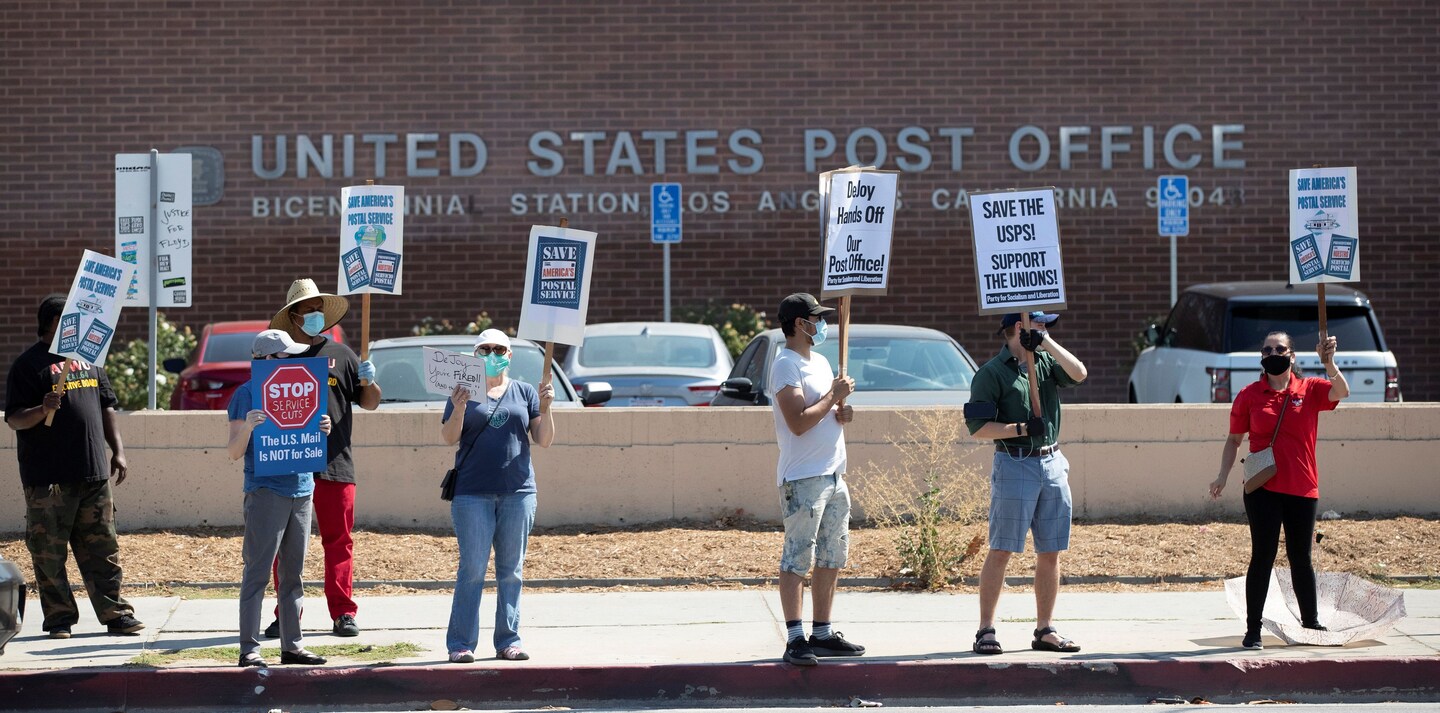Postal Service audit finds gaps in timely processing and delivery of election mail

“Resolving these issues will require higher level partnerships and cooperation between the Postal Service and various state officials, including secretaries of state and state election boards,” the office said in a release. “Timely delivery of Election and Political Mail is necessary to ensure the integrity of the U.S. election process.”
Eighteen states and D.C. have eased or expanded access to mail ballots during the pandemic, allowing voters to avoid potential exposure to the coronavirus at polling places. As a result, nearly 180 million Americans — a historic high — are eligible to cast mail or absentee ballots in the general election. In July, the Postal Service warned 46 states and D.C. that it could not guarantee all mailed ballots would arrive in time to be counted for the Nov. 3 vote. But Postmaster General Louis DeJoy has told lawmakers that election mail would be prioritized ahead of other first-class mailings.
The audit reviewed special and primary elections held in May and June, and how processing facilities in Santa Clarita, Calif.; Portland, Ore.; Baltimore; Charleston, S.C.; Indianapolis; Brooklyn; and Oklahoma City operated. The inspector general found that about 1.6 million mailpieces (or 8 percent) weren’t delivered on time between April and June for the seven facilities, blaming the processing gaps on a lack of management oversight.
Among its recommendations, the audit advised the agency to leverage its partnerships with state and local election officials to work toward creating a “separate, simplified mail product” exclusively for election mail that would support uniform mail processing.
David E. Williams, the Postal Service’s executive vice president and chief logistics and processing operations officer, responded to the audit’s findings in an Aug. 27 letter, urging voters to request their ballots at least 15 days before the day of the election and mail their ballots at least seven days before the day of the election.
“Management largely agrees with the audit’s findings and recommendations, and we reiterate our commitment to efficiently process the nation’s Political and Election Mail and to timely deliver such mail,” Williams said in the letter. “However, we disagree with OIG’s recommendation that the Postal Service should create a new Election Mail product for the 2020 General Election. The Postal Service also does not agree that it should be responsible for those recommendations or findings that fall under the ultimate control of the election officials, and, therefore, are outside of the Postal Service’s authority.”
The audit doesn’t reflect operational changes implemented by DeJoy. Those measures, plus widely reported mail delays during the summer, have led to questions from lawmakers and others about the GOP donor and his connection to the White House, especially after President Trump said he would block Postal Service funding to impede its ability to process ballots. But the Office of Inspector General said it would investigate those cost-cutting changes — some of which have been suspended until after the Nov. 3 election — in response to a congressional request.
This report is the office’s fourth audit of the Postal Service’s processing of election and political mail in two years. Previous findings that the office has highlighted include: a need for improved communication between headquarters, mail processing facilities and election officials; staff training; regularly updated websites; and appropriately aligned resources to process the peak volume of election and political mail.






